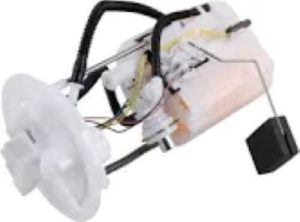A faulty fuel pump, on the other hand, may not be a direct contributor to overheating but rather an influence on the balance in the air-fuel mixture, which is meant to keep combustion complete. These fuel pumps are designed to deliver pressures in a range from 30 to 80 psi in different vehicle models. Failure to get adequate fuel pressure results in a lean fuel mixture-characterized by a large amount of air and a very insignificant amount of fuel. Lean conditions typically cause combustion temperatures to rise, which adds extra stress on the engine components. In a feeble attempt to help balance the mixture, the engine may begin to overheat; this is particularly true in high-demand situations, such as driving steep inclines or at high speeds.
In extreme conditions, a faulty fuel pump allows only restricted fuel flow, reducing the cooling effect of the fuel itself to the combustion chamber. Appropriately proportioned fuel actually absorbs some of the generated heat in combustion. If there is limited fuel flow, then this cooling benefit is lost by the engine, with internal temperatures possibly increasing. Mechanics have reported that lean-running engines have a 10-15% increase in combustion temperatures, increasing wear and tear on pistons, valves, and cylinder walls.

High-mileage vehicles are more prone to fuel pump issues. These types of pumps would, over time, usually around or even beyond 100,000 miles, start to wear out. Internal worn parts of the pump include the motor and the impeller. These will also further lessen the efficiency, and at times even cannot supply enough fuel at high RPMs that is needed by an engine who requires more fuel to be able to function properly. If not looked into, this creates lean conditions, which later on leads to more severe overheating problems, costly to fix.
The other cause of overheating is because a malfunctioning fuel pump tends to make the engine strain itself to keep up with power; especially if the fuel pump delivers fuel inconsistently. This extra burden increases engine temperatures and burdens the cooling system. Vehicles that already run near the edge of their cooling capacity, which includes those with smaller radiators or an older type of cooling system, will increase their likelihood of overheating when fuel delivery issues are at hand.
As once said by automotive expert Lee Iacocca, "The trick is quality in all things." Assuring a high-quality Fuel Pump that provides constant pressure maintains the proper fuel-air balance and keeps away from overheating. For reliable fuel pump options, visit Fuel Pump.